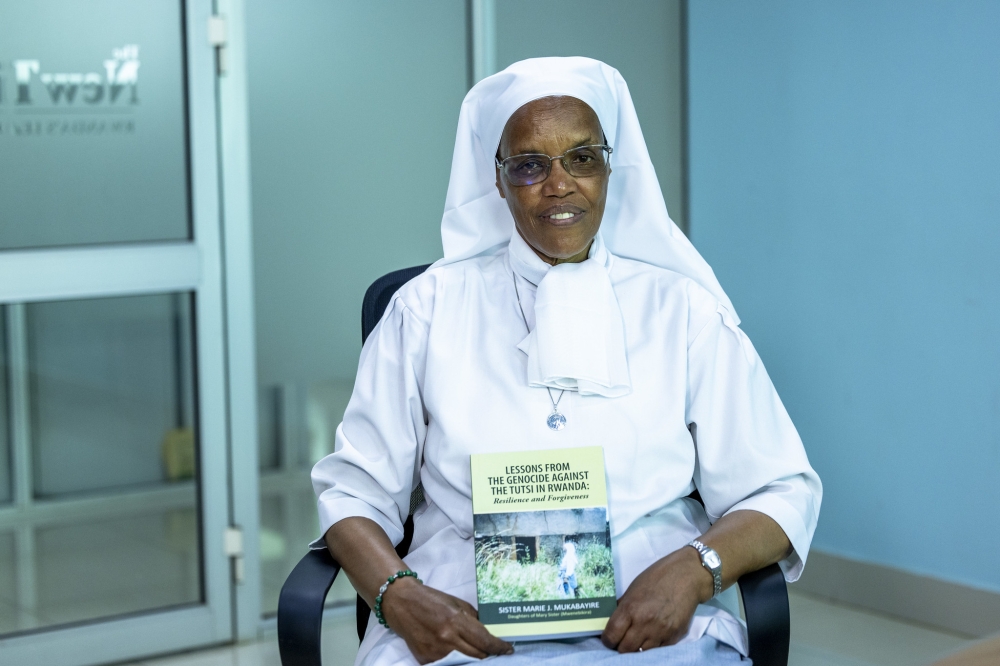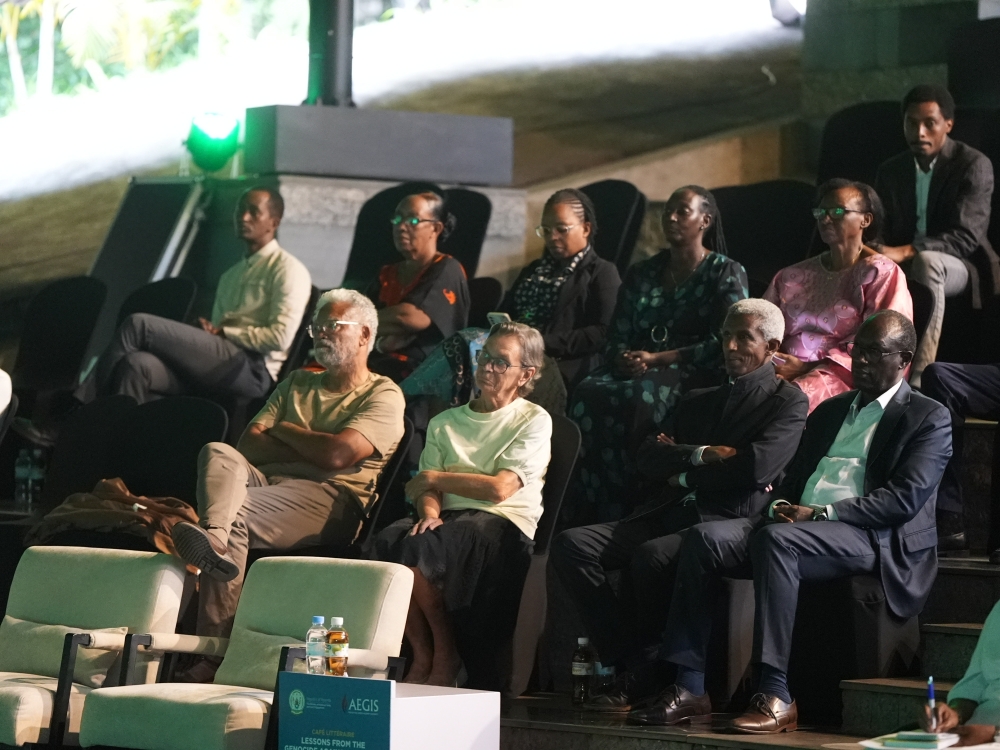

Inspired by family virtues of love, resilience, and personal healing, Sister Marie Josepha Mukabayire, a survivor of the 1994 Genocide against the Tutsi, chose to forgive those who killed her family.
In her 200-page memoir titled "Lessons from the genocide against the Tutsi in Rwanda: Resilience and Forgiveness,” she aims to portray the power of reconciliation and forgiveness.
ALSO READ: New book captures ‘defining moment’ in Rwanda&039;s history, tackles genocide denial
The devastating, horrifying storm of hate that erupted in the genocide, rather than create hopelessness, birthed resilience and courage for many survivors, she wrote, stressing that she made a personal decision to be resilient and to move forward. The result of the decision, she wrote, has been to forgive without measure, no matter how deep the loss and pain.


Mukabayire, a Catholic nun, lost over 63 members of her family including her parents and siblings, during the genocide. Her book, launched on Friday, January 3, at Kigali Genocide Memorial, tells the story of how she survived the overwhelming cruelty and hate that occurred during the genocide, and the root of her resilience.
In an interview with The New Times, a few days before the book’s launch she, among others, talked about her book and the lessons from the genocide against the Tutsi.
"There are many lessons. One of them is if you don't love your country, you can do everything bad for the country. But if you love your country, you work for it,” Mukabayire said.
You cannot hate your neighbour and then always do what is good for the country’s progress, she added.
"Another one; there are many people who helped us to grow, and move on. Like Inkotanyi, foreigners, and even ourselves [genocide survivors] when we supported each other,” she noted.
Mukabayire said that helping each other shows unconditional love in the community.
"When I see my community giving a house to orphans, I learn this is love, unconditional love to the young people who need to survive,” she said.
"This is strength which helps me to see that working together is a good thing for everybody.”
She emphasized that this inspired her to stop seeing herself as a victim, and instead dedicated herself to helping others.
"From where I was, I could stay there, but I found myself as a mother. I don’t have to be a victim. I want to help the victim to get out of the problem, to be a mother for those young people and to do the best I can to build my country wherever I am and wherever I will be,” she said.
Deep suffering shouldn’t be a reason to be held by the past, she said, emphasising the importance of focusing on the future, in the strong belief that everything will be alright.
"I learned that suffering is not the reason to be held by the past, but facing the future and believe that the future will be all right.”
Importance of family and children's proper upbringing
Asked about her message to young people, Mukabayire primarily reflected on the importance of family and children's proper upbringing.
"First of all, my message is for the family. Whatever you do for your child is the picture of his future,” she said.
"Unfortunately, parents don’t give time to their children. They [parents] don’t even know what happened at school.”
She said that her book also gives a picture of how her late father encouraged family gatherings in the evenings to talk about what was going on in everyone’s life.
"If you read my book, you see [that] every evening we were together around the table. My father was like a coach. We were a team. ‘What happened today?’ Then we could share. We had no television. We had nothing, but we had a good time. He knew what happened to each one of us. He said, ‘you have to go to school because the future is yours’. For parents today, I think it's possible to give time to children. When you hear something happen to a child, follow, and know what happened.”
She urged parents to take good care of their children as this plays a key role in shaping the child’s future.
"Please take care of the children, because it's their future. What you give them today is the foundation for their future.”
After the 1994 Genocide against the Tutsi, Mukabayire returned to Gikongoro, in current-day Nyamagabe District, to find out the fate of her family despite the trauma of facing people who killed her relatives.
Her decision to forgive was tested when she learned that a neighbour, once treated like a son by her father, was the one who actually killed him. But instead of harbouring hatred, she chose the path of forgiveness.
"On the first page, on the cover of the book, you see my picture in front of a house. It was my father's house. I went there, right from Belgium, to understand what happened to my family,” she said.
She underlined the courage that was inspired by her parents.
"All that we are now is what we receive from our parents. That resilience is rooted in my father's life, my mother's life. My parents were people who were like one person,” she said.
"If you read my book, you see how many times my father was in jail. But he didn't change or tell us what happened. He was just telling [us] good things. When we became older, we started to see how he forgave, always is looking for the good to make our family happy.”
Mukabayire emphasized that the words "never again” were also her main inspiration to write the book.
"Before you say ‘never again’, you have to know what happened. That’s why I wrote my book to show people that we were suffering,” she said, and stressed that it is a book for young people to read and understand what happened during the tragic days of 1994, and categorically say "never again,” and fight genocide denialism.


